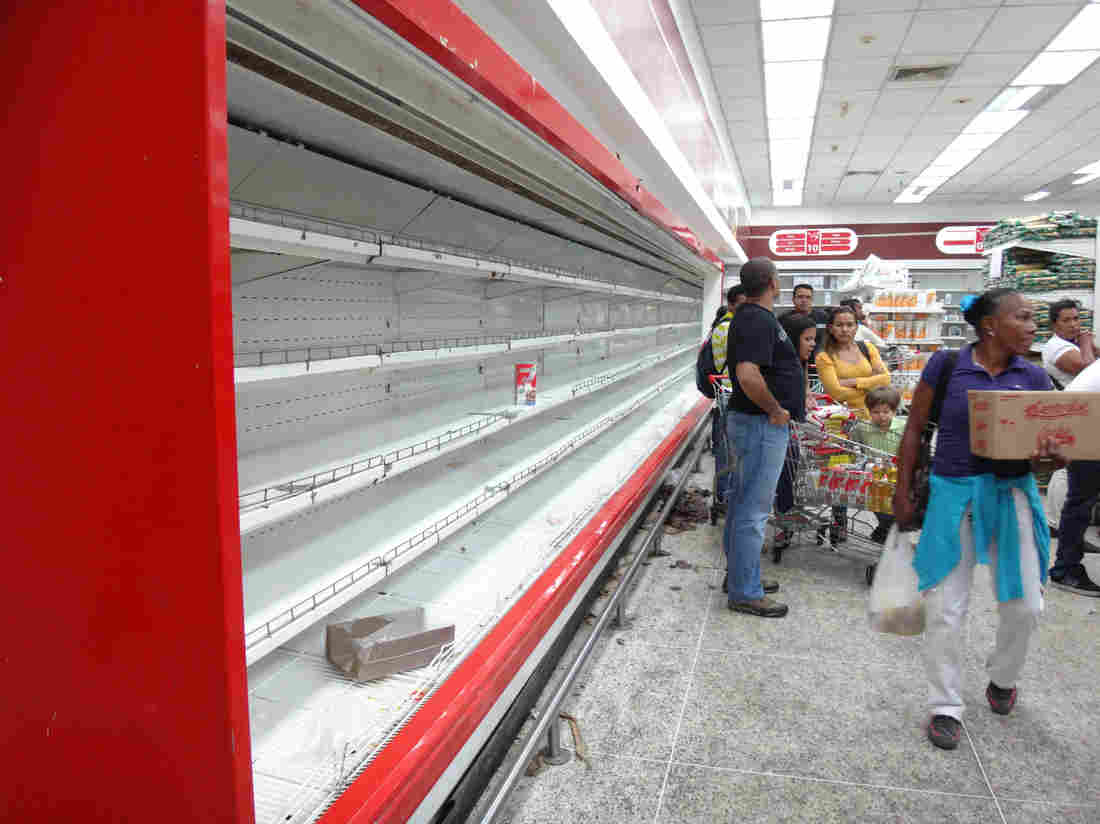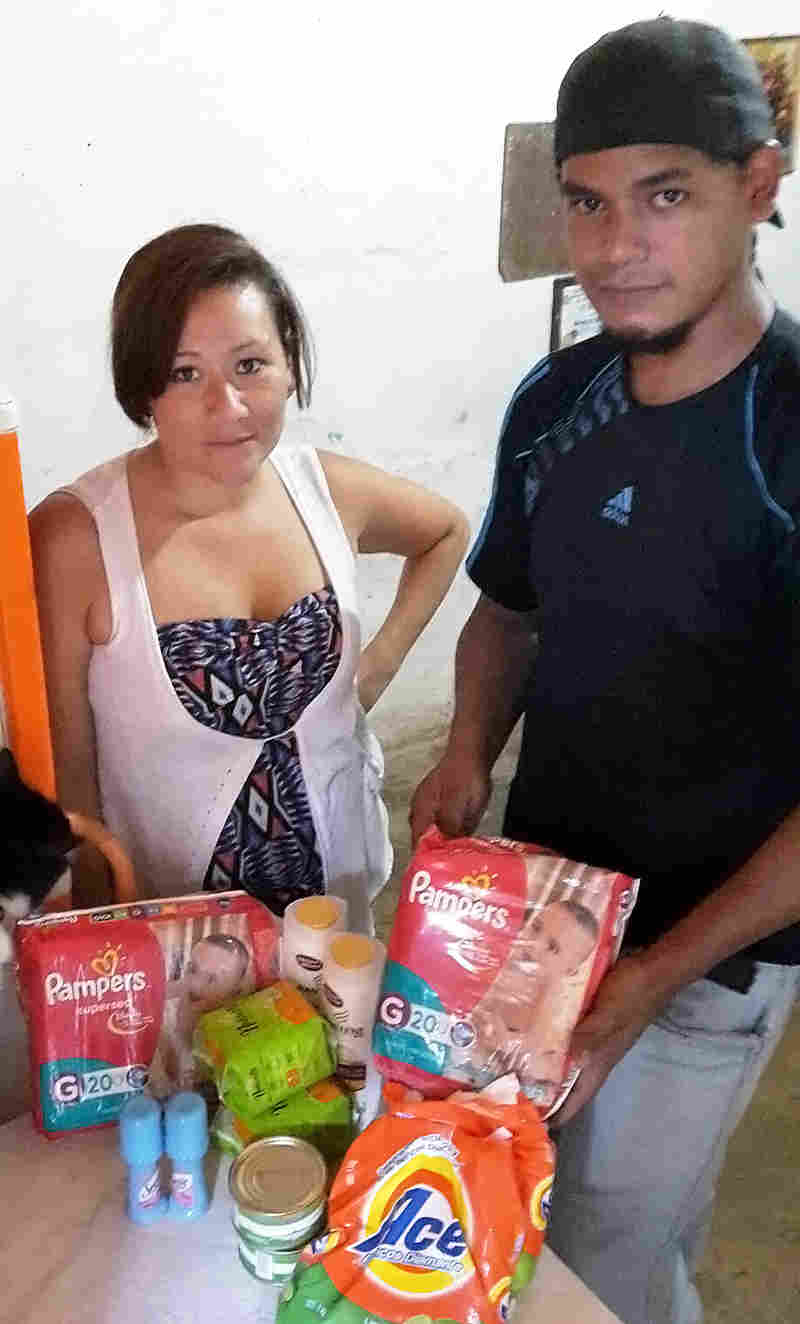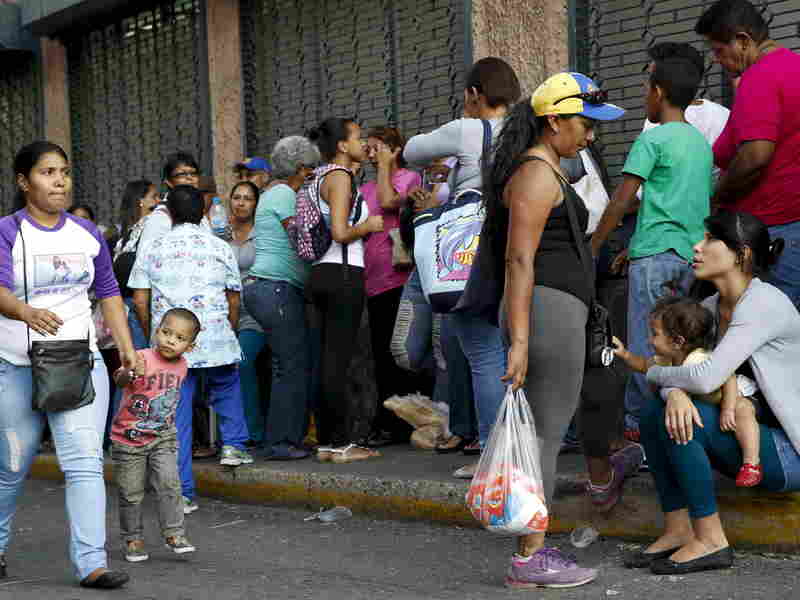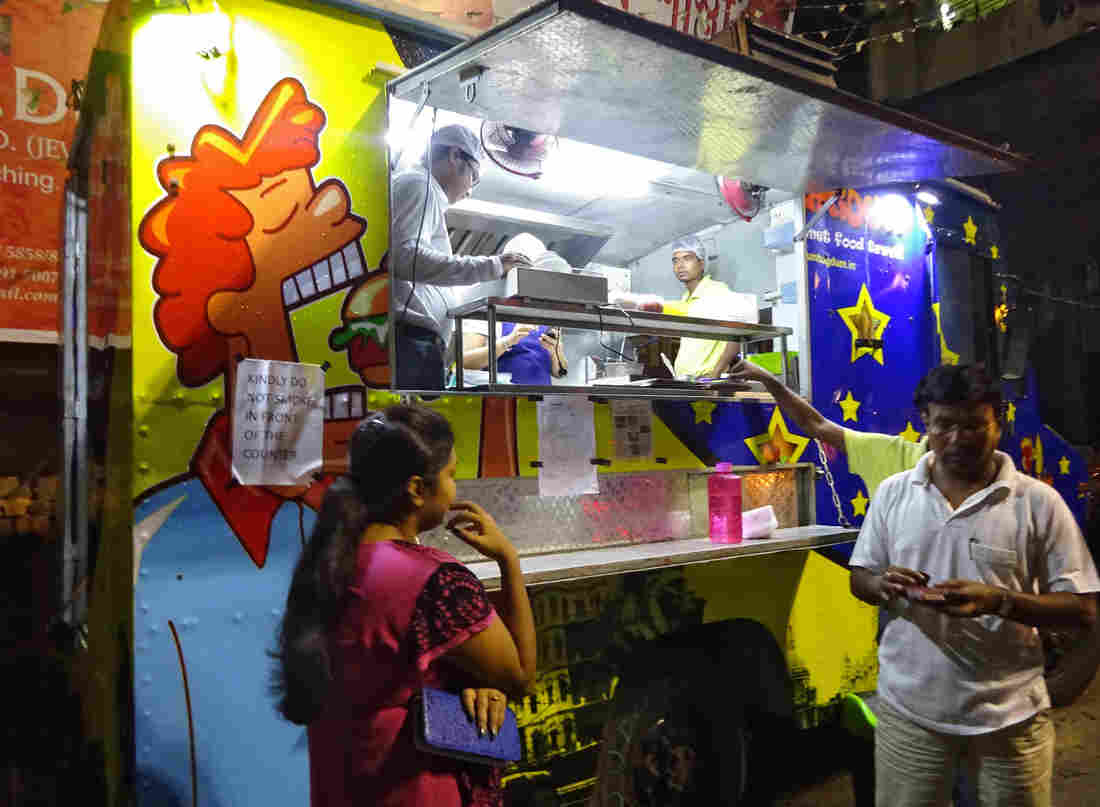The Nightmare Of Grocery Shopping In Venezuela

Empty shelves, like these at a supermarket in Caracas, are a common sight in Venezuela. People can shop only on designated days at government-run stores. They’re limited in what they can buy and must undergo fingerprint scanning to prove their identity. Kyodo/Landov hide caption
itoggle caption Kyodo/Landov
For Caracas housewife Anny Valero, today is grocery day — whether she likes it or not. Here’s why: It’s Monday, and if Valero doesn’t go now, she’ll have to wait four more days to buy food.
In Venezuela, government supermarkets sell price-controlled food, making them far cheaper than private stores. But Valero explains that people are allowed in state-run supermarkets just two days per week, based on their ID card numbers. The system is designed to prevent shoppers from buying more than they need and then reselling goods on the black market at a huge markup.
Venezuela is rich in oil, but now poor in just about everything else. Economic mismanagement combined with low oil prices and high inflation has created one of the world’s most troubled economies. The government has stopped giving regular economic statistics, but many independent economists say inflation is now north of 100 percent annually.

Anny Valero and Yossmy Benaventi came away from a recent shopping trip with sardines, diapers, detergent and a few other items. They had to produce their son’s birth certificate to prove the baby was theirs and that they really did need the diapers. John Otis for NPR hide caption
itoggle caption John Otis for NPR
Rising anger over food shortages — plus byzantine rules about when and where people can buy things — have made grocery shopping in Venezuela a nightmare.
Valero says goodbye to her 7- and 9-year-old daughters. They will skip school and stay home alone in a Caracas slum, with the door locked. That’s because Valero sometimes spends all day standing in line at grocery stores and can’t pick up the girls after class.
Valero brings along Jeremy, her 6-month-old son. We are also joined by her husband, Yossmy Benaventi. He’s skipping work at an auto repair shop to help look after the baby and ward off thieves who snatch people’s grocery bags.
We stop at a state-run store. There are no lines outside, but that often means there’s not much food left. Inside, the meat department is a barren landscape.
“There’s just unplugged display cases, flies and a bad odor,” Valero says. She settles for three cans of sardines. She also finds diapers for Jeremy.
But checkout is like clearing customs in a hostile foreign country. The checkout clerk scrutinizes Valero’s ID card and tells her to hold her index finger over a fingerprint scanner.
The clerk scans the merchandise and then informs Anny that, because of rationing, she can buy just two of the three cans of sardines. Then, Valero and Benaventi must produce Jeremy’s birth certificate to prove the baby is theirs and that they really do need the diapers.

Mothers take care of their children while lining up to buy staple goods outside a supermarket in Caracas earlier this month. CarlosS Garcia Rawlins/Reuters/Landov hide caption
itoggle caption CarlosS Garcia Rawlins/Reuters/Landov
“This is such a waste of time, and we have to do it every week,” Valero says. “My husband risks losing his job because he’s here with me shopping. And on top of that, we can only buy two of each item.”
The final bill is the equivalent of less than a dollar. But that’s part of Venezuela’s scarcity problem. Economists say price controls make it unprofitable for farms and businesses to produce goods. Falling oil prices mean Venezuela has less money to import food.
President Nicolas Maduro also blames smugglers, who resell cheap Venezuelan goods in neighboring Colombia. In August, he closed the border.
But Valero blames the government and plans to vote for the opposition in legislative elections in December. The ruling Socialist Party is expected to take a beating.
Another frustration for Venezuelans is that the shopping controls just don’t seem to work. On the street, we meet black-market vendors hawking eggs, chicken and five kinds of fish. But buying just a few pounds of beef or tuna would eat up a quarter of Benaventi’s monthly salary.
Back home, the girls are fine. But the only food Valero has brought back is the sardines. Her family will have leftovers tonight and rely on their dwindling supply of rice and pasta over the next few days. Then Valero will attempt another grocery run — with her husband again missing work and the girls skipping school.



